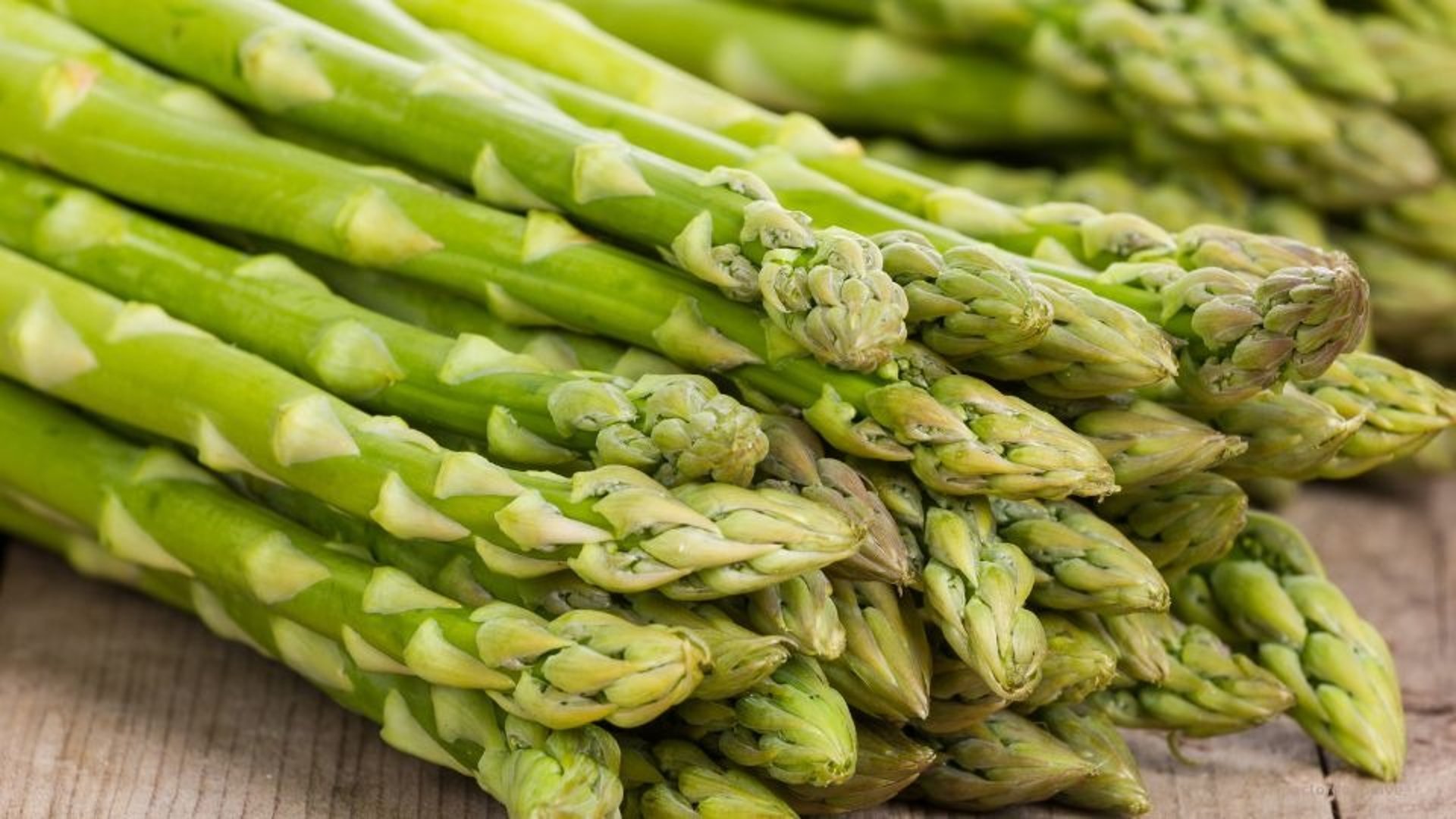
Health Benefits of Asparagus: Vitamins, Minerals and Health

Health Benefits of Asparagus: Vitamins, Minerals and Health
Scientific Name: Asparagus officinalis
Family: Asparagaceae
What Is Asparagus?
Asparagus is a nutrient-rich vegetable known for its tender stalks and distinctive flavor. Unlike many vegetables, asparagus is low in calories but packed with vitamins, minerals, fiber, and antioxidants. It is enjoyed worldwide in a variety of dishes, from simple steamed sides to gourmet salads and stir-fries, celebrated for its health benefits including digestive support, heart health, and anti-inflammatory properties.
Where Does It Come From?
Asparagus is native to the Mediterranean region and parts of Asia. It has been cultivated for thousands of years and is now grown in temperate climates worldwide. Major producers include the United States (California and Michigan), Mexico, Peru, Germany, and China.
Types of Asparagus
Green Asparagus: The most common variety, with a fresh, grassy flavor and tender texture.
White Asparagus: Grown underground to prevent photosynthesis, resulting in a milder taste and pale color.
Purple Asparagus: Sweeter and nuttier than green, with a vibrant purple hue that fades when cooked.
Seasonality & Availability
Asparagus is typically in season during spring, though availability varies by region. Thanks to global trade, fresh asparagus is often available year-round in supermarkets, with peak freshness and flavor in spring and early summer.
Benefits
Asparagus is rich in vitamins A, C, E, K, and several B vitamins, especially folate. It provides minerals like potassium, iron, and calcium. Its high fiber content supports digestion and satiety. Antioxidants such as glutathione help protect cells from damage. Asparagus also contains anti-inflammatory compounds and prebiotic fibers that nourish beneficial gut bacteria.
Bioactive/Anti-Inflammatory Factors
Asparagus contains saponins and flavonoids that reduce inflammation and may support immune health. Its antioxidants help neutralize free radicals, potentially lowering the risk of chronic diseases.
Nutritional Breakdown (per 100 g raw)
Vitamins:
Vitamin K: 41.6 µg supports blood clotting and bone health
Folate (B9): 52 µg essential for DNA synthesis and pregnancy health
Vitamin C: 5.6 mg immune support and antioxidant
Vitamin A: 756 IU vision and skin health
Vitamin E: 1.1 mg antioxidant protection
B Vitamins (B1, B2, B3, B6): Support energy metabolism and brain function
Minerals:
Potassium: 202 mg fluid balance and heart health
Calcium: 24 mg bone strength
Iron: 2.1 mg oxygen transport
Magnesium: 14 mg muscle and nerve function
Phosphorus: 52 mg bone and energy metabolism
Macronutrients:
Water: 93 g
Energy: 20 kcal
Protein: 2.2 g
Total fat: 0.1 g
Carbohydrates: 3.9 g
Fiber: 2.1 g
Sugars: 1.9 g
Risks
Asparagus is generally safe for most people. Some may notice a distinct odor in urine after consumption, caused by sulfur compounds — this is harmless. Rare allergic reactions can occur. People with kidney issues should moderate intake due to purine content.
Medication & Supplement Interactions
Vitamin K in asparagus can affect blood-thinning medications like warfarin. Consistent intake is important, and consultation with a healthcare provider is advised. Asparagus may enhance absorption of certain nutrients when eaten with fat-soluble vitamins.
What Does Asparagus Do for the Body?
Asparagus supports healthy digestion by providing fiber that promotes regular bowel movements. Its antioxidants and anti-inflammatory compounds help strengthen the immune system and may lower the risk of chronic diseases. The potassium in asparagus aids in maintaining healthy blood pressure, while folate is essential for cell growth and fetal development. Being low in calories but rich in nutrients, asparagus is also great for managing weight.
Who Should Be Cautious
Individuals on anticoagulant therapy should monitor vitamin K intake.
Those with kidney disease should consult a doctor due to purine content.
People with known allergies to asparagus or related plants should avoid it.
Surprising Truths
Asparagus is one of the few vegetables that naturally contains vitamin K in significant amounts. Its prebiotic fibers help feed beneficial gut bacteria, supporting overall gut health. The unique sulfur compounds responsible for the urine odor also have antioxidant properties.
Environmental Impact
Asparagus farming requires moderate water use and benefits from sustainable practices like drip irrigation and organic cultivation. Choosing locally grown asparagus reduces carbon footprint and supports regional agriculture.
Best Time to Eat
Spring is the best season for fresh, tender asparagus with peak flavor and nutrition. However, frozen asparagus retains much of its nutritional value and is a convenient year-round option.
Best Ways to Use It
Steamed or boiled lightly to preserve nutrients
Grilled or roasted for a smoky flavor
Added raw or blanched to salads
Stir-fried with garlic and olive oil
Blended into soups or smoothies
Label Reading Tips
Look for fresh, firm stalks with closed tips. Avoid packages with wilted or slimy asparagus. For frozen products, check for no added sauces or preservatives.
Chef & Culinary Tips
Choose asparagus with firm, straight stalks and vibrant color. To speed ripening, store at room temperature. To prevent toughness, peel thicker stalks before cooking. Use lemon juice or vinegar to brighten flavor.
Storage & Shelf Life
Store fresh asparagus upright in a glass of water or wrapped in a damp cloth in the fridge. Use within 2-3 days for best quality. Frozen asparagus can be stored for several months.
Recipes or Meal Ideas
Roasted asparagus with garlic and parmesan
Asparagus and lemon risotto
Asparagus salad with cherry tomatoes and feta
Creamy asparagus soup
Stir-fried asparagus with tofu and sesame seeds
Science Behind It
Studies show asparagus’ antioxidants help reduce oxidative stress. Folate supports DNA repair and fetal development. Its prebiotic fibers promote a healthy gut microbiome. Regular consumption is linked to improved heart health and reduced inflammation.
FAQs
Is asparagus good for weight loss?
Yes, low in calories and high in fiber, it supports fullness and digestion.
Why does asparagus make my urine smell?
Sulfur compounds break down during digestion, causing a distinct odor.
Can I eat asparagus raw?
Yes, thin stalks can be eaten raw in salads or as snacks.
Does cooking reduce nutrients?
Light cooking preserves most nutrients; overcooking can reduce vitamin content.
info@inspectordeepdive.com
© 2025 food.InspectorDeepDive.com. All rights reserved. Content may not be copied or republished without permission.
This article is for informational purposes only. InspectorDeepDive.com does not provide medical advice. Always consult a licensed healthcare provider before making dietary or health decisions.
